Steve Flowers: Are we now a two party state?
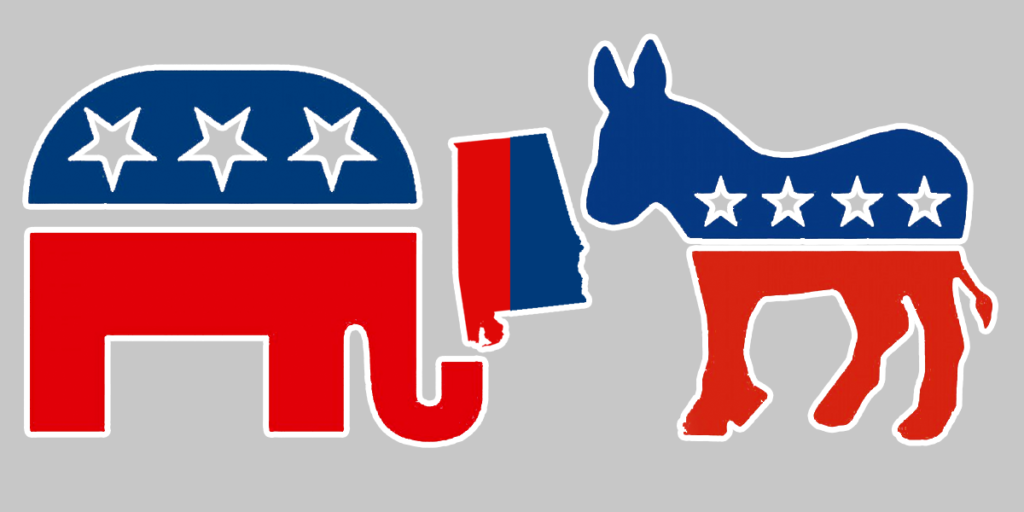
As we enter the 2018 campaign season, many of you have asked me to look back and analyze the 2017 Special Election Senate race and explain in depth what happened and why. The most asked question is how could a Democrat win a U.S. Senate seat in Alabama and does this mean that we are now possibly a two party state? I will give you numerous answers, however, the simple answer to why a Democrat won is that Roy Moore was the Republican nominee. Are we a state that can go either way in an open U.S. Senate seat? As we have just seen, it is possible but not probable. The Democrat, Doug Jones, won in the perfect storm. We will probably never have this same scenario again. There are two maxims in politics that over my years of following politics never fail and become truer and truer. The more things change, the more they stay the same. One is money is the mother’s milk of politics. The second is that more people vote against someone or something than vote for someone or something. To the first adage, money is the mother’s milk of politics, nine times out of ten when one candidate out spends the other the one who spends the most usually wins. When one outspends the other 3-to-1, they always win. In this race, the National Democratic Party saw an opening and they seized on it. The people in blue America are mad as hell that Donald Trump upset Hillary Clinton. Our senate race was the only race in town or should we say the country. Not only do Democrats despise Trump, but when they heard that Alabama had a Republican candidate that is a pro-God, pro-gun, gun toting, antiabortion, horse riding, religious zealot that said that he was not only against gay marriage but said that gays were legally committing bestiality, the nation saw Roy Moore as a little extreme in today’s America. In addition, a good many people around the country believe he is a pedophile. The liberal and gay money flowed into here by the barrel. It came from New York and San Francisco and all liberal pockets in America. The bottom line is the Democrat, Doug Jones, outspent the Republican, Roy Moore, 6-to-1; 18 million to 3 million and that does not count the soft money spent by the National Democratic Party that was spent on getting out the vote. The book was written on Moore from the get go. The first poll and the last poll revealed that 30 percent of Alabamians would vote for Roy Moore come hell or high water. However, he is so polarizing that a whopping 70 percent said that they would not vote for him under any circumstance. The reason that he won the Republican nomination was that his 30 percent became accentuated due to turnout. His voters are more ardent, fervent and frankly older. Moore’s 30 percent did indeed vote on December 12. The problem for Moore was that the 70 percent that detest him voted more than was expected. The biggest part of that 70 percent was African American voters who voted in epic, unparalleled proportions. It was statewide. It was not only in the urban counties of Jefferson, Montgomery, and Mobile and the Black Belt. This tidal wave occurred in all 67 counties. African American voters came together in a crescendo and sent Roy Moore to a watery grave. Doug Jones owes his election to the Black voters and he knows it. A significant number of urbane, upscale, more educated business establishment Republicans voted against Moore, pragmatically. The image that Moore portrayed to the nation was bad for business and economic development. The best example of this was the results in Madison County. Huntsville is Alabama’s crown jewel and economic engine. They generally vote Republican. Moore lost Madison County by 20,000 votes. Senator Richard Shelby contributed to Moore’s defeat. His refusing to vote for Moore and his open acknowledgement that he cast a write-in vote for an unknown Republican gave credence and impetus for other Republicans to follow suit. There were about 22,000 write-in votes. Moore lost by 21,000. How does this play into 2018. It gives Walt Maddox and Sue Bell Cobb hope and credence that under the right and perfect circumstances a Democrat can win. However, it probably does not change the fact that a Republican gubernatorial or senatorial candidate will be favored to win 60/40. Luther Strange or Mo Brooks would have won the Senate race 60/40. See you next week. ••• Steve Flowers is Alabama’s leading political columnist. His weekly column appears in over 60 Alabama newspapers. He served 16 years in the state legislature. Steve may be reached at www.steveflowers.us.
Darryl Paulson: Amnesty Don
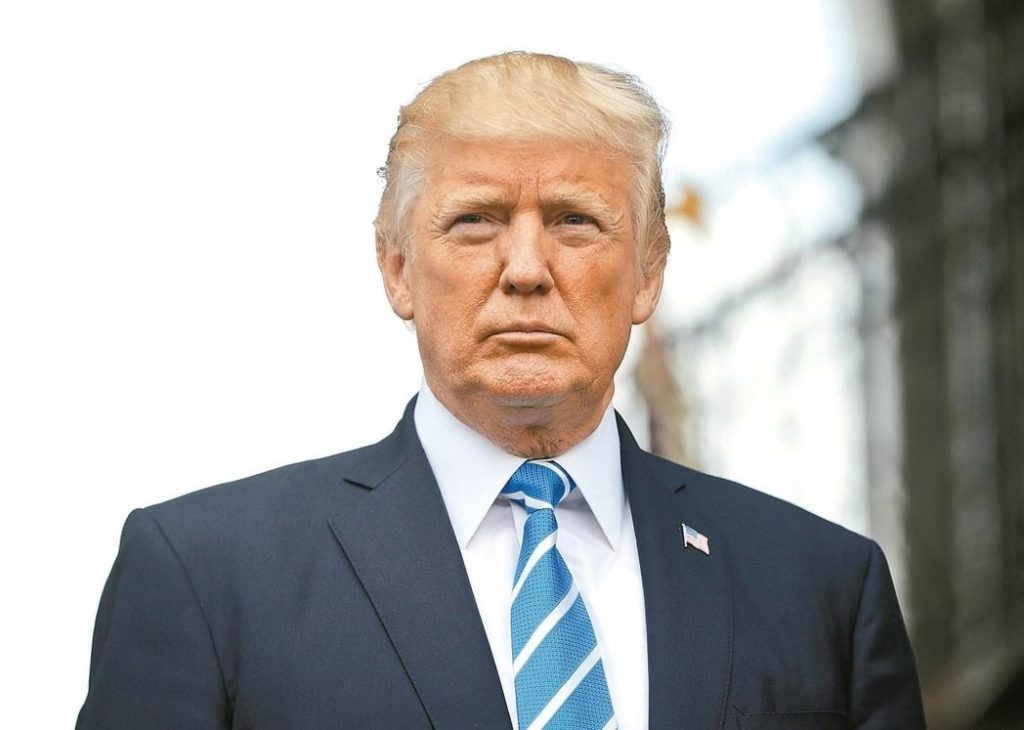
Amnesty Don. That’s what Steve Bannon and Breitbart News called President Donald Trump after news came out that the president and the Democratic leadership of congress brokered a deal concerning the Dreamers. According to reports, Trump struck a deal with Democratic leader of the Senate Chuck Schumer and Democratic House leader Nancy Pelosi. The supposed deal was to grant work visas and a pathway to citizenship for the children of illegal immigrants. Democrats agreed to bolster the number of immigration agents, but refused to support building a wall on the Mexican border. After conservative critics ranging from Laura Ingraham, Ann Coulter, Congressman Steven King and others attacked Trump for striking an amnesty deal with Democrats, Trump denied that any deal had been reached. Immigration policy has always been one of the most divisive issues in America. Much of the early controversy centered around the Irish and German immigrants, both associated with the Catholic Church. The attack on the Irish and German Catholics led to the formation of the “Know-Nothing Party in the 1850s. The party derived its name when members were asked about their beliefs, they were told to respond, “I know nothing.” Founded after the collapse of the Whig Party, the Know-Nothing Party swept Massachusetts elections in 1854. In the 1856 presidential election, their candidate was former Whig president Millard Fillmore, who won 21.5 percent of the vote. The party collapsed after the 1856 elections. Many critics of current anti-immigrants attempt to link their views to the Know-Nothing Party. In a 2006 editorial in The Weekly Standard, editor William Kristol attacked populous Republicans for “turning the GOP into an anti-immigrant, Know-Nothing Party.” In addition to the attacks on the Irish and Germans, later attacks focused on Southern Europeans, Africans and Asians. Congress passed the Chinese Exclusion Act in the 1880s, which completely stopped the flow of Chinese immigrants. The Simpson-Mazzoli Act of 1986 granted amnesty to illegal workers who resided continuously in the United States since Jan. 1, 1982, and paid a fine and back taxes. It was passed by the Democrat controlled House, the Republican Senate and signed into law by Republican Ronald Reagan. A flood of illegal immigrants since Simpson-Mazzoli has led to more recent efforts to grant permanent status to the most recent wave of illegals. In 2010, Congress considered the Dream Act which would have granted work permits to the children of illegal immigrants and create a pathway to citizenship. Although it passed the Democratic controlled House, the Senate was not able to get the 60 votes needed to stop a Republican filibuster. Because of the failure of Congress to pass the Dream Act, President Obama signed an executive order in 2012 to protect the Dreamers. The Deferred Action for Childhood Arrivals (DACA), was praised by the Democrats, but attacked by Republicans who argued the president lacked the authority to unilaterally change immigration policy. DACA became a focal point of the 2016 presidential campaign when candidate Donald Trump promised to end DACA on “Day One.” He also promised to build a wall on the Mexican border. Instead of “Day One,” it took Trump eight months to rescind DACA. There are currently four major legislative proposals before Congress to reform immigration. The Dream Act, sponsored by Democrat Dick Simpson of Illinois and Republican Lindsay Graham of South Carolina, would codify DACA, impose educational, work and military requirements and create a path to citizenship after 13 years. Florida Republican Congressman Carlos Curbelo has introduced the Recognizing America’s Children Act. This bill codifies DACA, imposes work and educational requirements, and creates a path to citizenship after 10 years. The American Hope Act sponsored by Democratic Representative Luis Gutierrez of Illinois, has 112 Democratic co-sponsors. There are no work or military requirements and Dreamers may apply for citizenship after five years. Finally, Republican House member Mike Coffman of Colorado has introduced the Bar Removal of Individuals [who] Dream and Grow our Economy (Bridge Act). Coffman is seeking to obtain 218 signatures and force DACA to the floor for a vote. Will President Trump’s negotiations with the Democratic leadership force Republicans to act, or will it alienate them from their president by shutting out Republicans from the negotiations? Will Republican leaders Mitch McConnell and Paul Ryan schedule a floor vote on DACA, especially if most Democrats support the bill and most Republicans oppose the bill? Will Democrats offer concessions to the president and Republicans in exchange for supporting DACA? Will Democrats agree to build a birder wall? Will Democrats support E-Verify to enforce immigration law? Will Democrats agree to hire more immigration agents? At this point, there are a lot more questions than there are answers. ••• Darryl Paulson is Emeritus Professor of Government at the University of South Florida in St. Petersburg specializing in Florida politics and elections.
Donald Trump makes nice with Dems, leaving his party confused
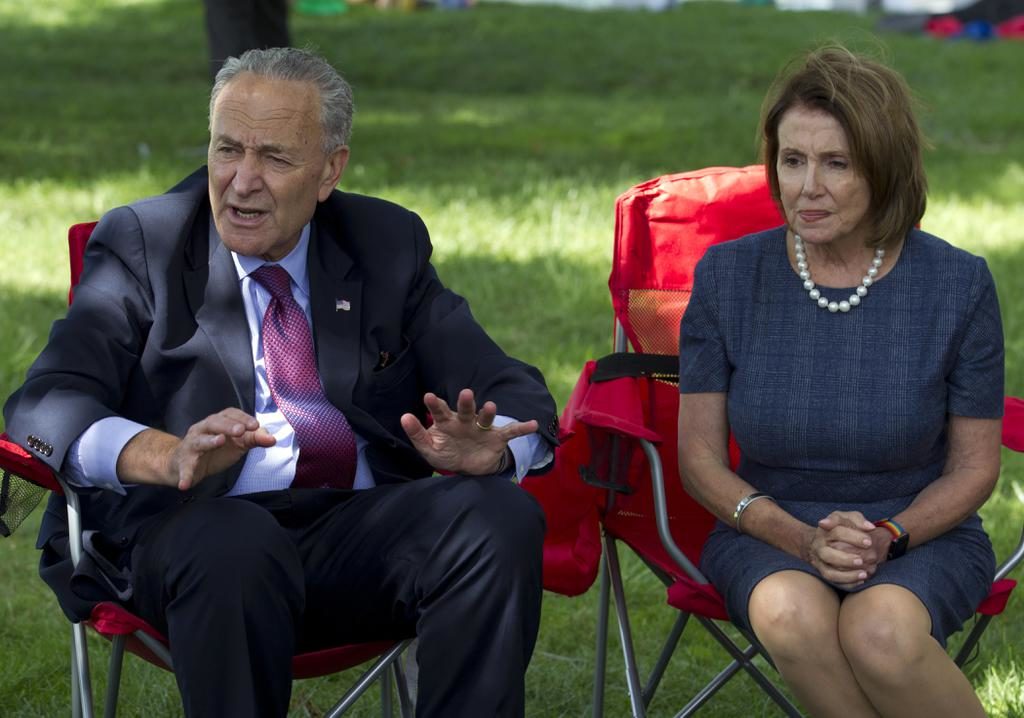
President Donald Trump was in the mood to celebrate after cutting a big deal with opposition Democrats. Joshing with Northeastern officials in the Cabinet Room, Trump hailed New York Democrat Andrew Cuomo as “my governor” and traded banter with Senate Democratic leader Chuck Schumer, another fellow New Yorker. “If you just dropped in from outer space, you wouldn’t know what the last eight months have been like,” said Rep. Peter King, R-N.Y., recalling the friendly exchanges between Trump and Schumer during the meeting with New York and New Jersey lawmakers. That would be the same Schumer whom the president had previously slammed as a “clown” and “Cryin’ Chuck.” And now? “In some ways it’s almost like they were completing each other’s sentences,” King said. On display at that chummy scene Thursday was the Trump who’s emerged in full this past week: Trump the independent. A president who spent months catering to the Republican conservative wing now appears unbound by ideology and untethered by party allegiances. It’s not a complete surprise to his fellow Republicans. They long have worried that Trump, a former Democrat, might shift with the political winds. But Trump’s overtures to Democrats have left Republicans in an awkward and perplexing position, undercut by their leader and unsure of what’s next. “Our grass roots are very confused,” said Rep. Mark Meadows, R-N.C., head of the conservative House Freedom Caucus, on MSNBC Friday. Meadows said he viewed the deal as a “unique situation because of the devastation in Texas.” Trump’s deal with Democrats to raise the U.S. borrowing limit and keep the government running for three month months – all in the name of speeding relief to hurricane victims – quickly passed Congress and gave him the opportunity to savor a victory after months of legislative setbacks. He’s now talking about possible future deals with Democrats – doing away with votes on the raising the debt cap, and shielding from deportation young immigrants living in the United States illegally who were brought here as children. “I think that’s what the people of the United States want to see,” Trump said. “They want to see some dialogue.” It’s unclear how much of Trump’s turnabout is a deliberate strategy to create space for his tax overhaul this fall or simply a deal-maker’s gut decision, bargained during an Oval Office session that left his fellow Republicans befuddled. Trump has been frustrated by GOP leaders and blames House Speaker Paul Ryan, R-Wis., and Senate Majority Leader Mitch McConnell, R-Ky., for his inability to score big triumphs in Congress. He’s appeared unconcerned about dismissing their opposition to the debt ceiling deal, focusing instead on the fact that the move has delivered him rare kudos with some television commentators. Trump sprinkled salt on the wound Friday by reminding GOP leaders via Twitter about their failed efforts to overhaul former President Barack Obama‘s health law: “Republicans, sorry, but I’ve been hearing about Repeal & Replace for 7 years, didn’t happen!” In venting about Republican congressional leaders, Trump may just be channeling his supporters. Trump, who essentially hijacked the party two years ago, has positioned himself as the voice of voters who feel alienated from Washington and disdain both parties. “The Republicans in the Senate did not follow through on their commitment in working with the administration to repeal Obamacare. So what’s he going to do?” asked Tony Perkins, the president of the Family Research Council. Perkins said he didn’t think Trump’s most loyal supporters would approve of extended dealings with Schumer and House Democratic leader Nancy Pelosi of California. But, he added, “They’re just as mad at the Republican leadership as they are the Democrats.” Still, Trump’s startling agreement on the debt left Republicans wondering how far he’s willing to stray from party orthodoxy in pursuit of a deal. Their frustrations spilled out during a closed-door meeting Friday with Treasury Secretary Steve Mnuchin and White House budget chief Mick Mulvaney, a former South Carolina congressman, who were sent to Capitol Hill to defend the deal. At one point Mnuchin, a former Goldman Sachs executive and Democratic donor, drew hisses when he asked House Republicans to “vote for the debt ceiling for me,” according to Rep. Mark Walker, R-N.C. From the start of his presidency, Trump has repeatedly labeled Democrats as obstructionists, and few expect his budding alliance with Schumer and Pelosi to be long-lived. Trump is loathed by the Democratic base, many of whom talk more openly about impeachment than cooperation. But there’s little doubt that Trump’s talk of “dealmaking” may occasionally open up possibilities for Democrats. “I think the president, when it comes to making deals, is an enigma,” said Rep. Steve King, R-Iowa. King said he will continue to work with Trump, but acknowledged that the past week had been a “little unsettling” and noted that “conservative allies have been leaving the West Wing at a fairly regular pace.” One of the top aides King was referring to was Steve Bannon. The strategist was ousted in August but remains a vocal proponent of the president’s agenda. Trump announced the deal with Democrats while Bannon was sitting for an interview with CBS News, but the Breitbart executive chairman saved his most pointed remarks for McConnell and Ryan, accusing them of trying to “nullify” the results of the 2016 election. The headlines on the Breitbart website Friday reflected the anti-establishment wing’s distrust of some of Trump’s New York allies, as well as party leadership – but not of Trump himself. Other Republicans are willing to give Trump a pass, for now. “Of course I view him as a Republican,” said Rep. Darrell Issa, R-Calif. He said that when Republicans can’t solve a problem by themselves, “then the president has that obligation to be that neutral arbitrator.” Republished with permission from the Associated Press.
House moving swiftly on $7.9B Harvey relief bill
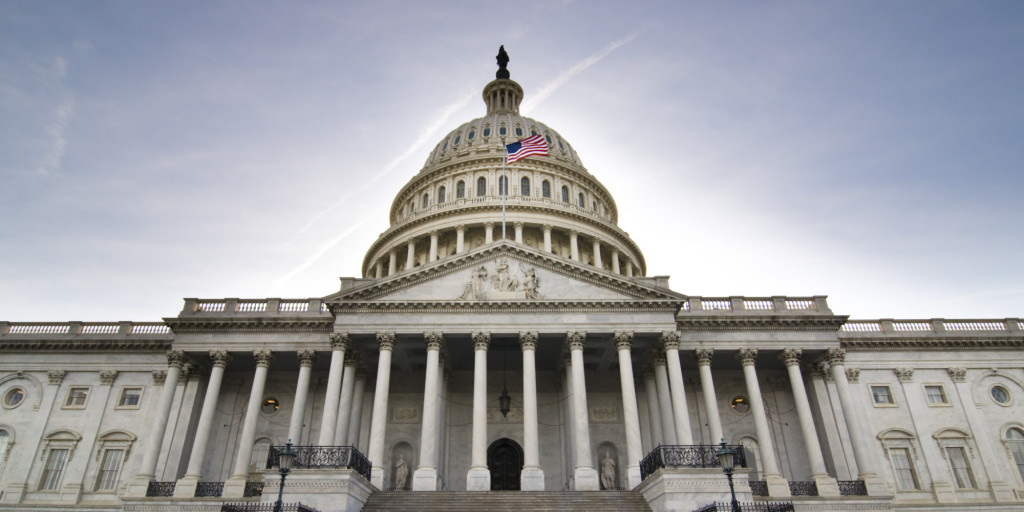
The House on Wednesday moved swiftly toward approving $7.9 billion in Harvey disaster relief as Democratic leaders signaled they would back the measure along with a short-term increase in the nation’s borrowing limit to avoid an economy-rattling default. The announcement by House Minority Leader Nancy Pelosi, D-Calif., and Senate Minority Leader Chuck Schumer of New York is aimed at retaining Democratic influence and trying to ensure the Republican-controlled Congress addresses health care and immigration as the hectic fall agenda kicked off. “Given Republican difficulty in finding the votes for their plan, we believe this proposal offers a bipartisan path forward to ensure prompt delivery of Harvey aid as well as avoiding a default, while both sides work together to address government funding, DREAMERS, and health care,” Pelosi and Schumer wrote. Democratic votes are needed to quickly pass a debt limit increase, even though Republicans control Congress. Many Republicans simply won’t vote to increase the debt limit without cuts elsewhere in government spending. Wednesday’s House vote comes as the government’s response to Harvey is draining existing disaster reserves, with Federal Emergency Management Agency‘s disaster accounts hovering at $1 billion or less. FEMA is warning lawmakers that disaster funds run out on Friday, even as a much more powerful hurricane, Irma, is bearing down on the eastern U.S. This week’s measure is to handle the immediate emergency needs and replenish reserves in advance of Irma. Far more money will be needed once more complete estimates are in this fall, and Harvey could end up exceeding the $110 billion government cost of Hurricane Katrina. The move by Pelosi and Schumer is aimed at winning assurances that minority party Democrats will be treated fairly as Congress advances through its daunting to-do list, which includes extending a popular children’s health program, federal flood insurance, and, perhaps, a budget that would ease tight limits on Pentagon and domestic spending. The statement came out as the House Wednesday took up a $7.9 billion request by President Donald Trump‘s for a $7.9 billion first installment of relief for victims of Harvey. House action on Wednesday would set up a Senate debate that, as of Wednesday, would follow an uncertain path. GOP leaders have signaled that they want to use the urgent Harvey aid bill to solve perhaps the most vexing issue facing Congress this month: Increasing the U.S. debt limit make sure the government can borrow freely again to cover its bills, including Harvey aid. Senate Majority Leader Mitch McConnell, R-Ky., said again Wednesday that increased Harvey costs show the importance of acting swiftly to increase the government’s debt cap to make sure there’s enough borrowed cash to pay out the surge in disaster aid. “I think it’s a terrible idea,” said House Freedom Caucus Chairman Mark Meadows, R-N.C., who conceded that conservatives were getting outmaneuvered. “I think at this point there are bigger issues that we have to focus on,” Meadows said. “I have opposed a debt ceiling increase every time it has come up for a vote,” said Rep. Roger Williams, R-Texas. “I am heavily opposed to lumping these two separate issues together.” Analysts at the Bipartisan Policy Center, a Washington think tank, say Harvey aid wouldn’t cause a cash crunch for weeks. “We’re dealing with all these things at this point in time anyway,” said House Democratic Caucus Chairman Joe Crowley of New York. “Democrats have said we’re for a clean debt ceiling and we’re also for making sure the people from Texas, Louisiana, and elsewhere who’ve been severely damaged by these storms – with one more on the way as well – that their needs need to be addressed as well.” Republished with permission from the Associated Press.
Democrats risk culture war fight in Charlottesville response
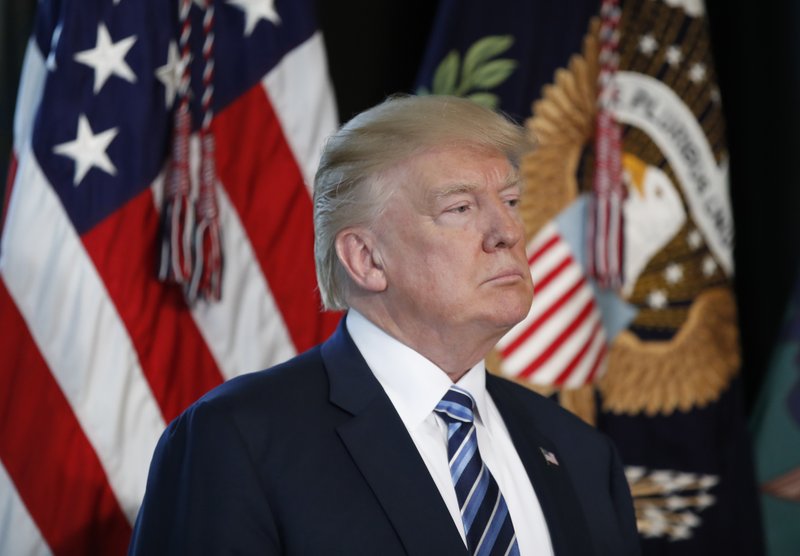
President Donald Trump‘s widely criticized response to white supremacist violence in Virginia has left Democrats in a quandary: how to seize the moral high ground without getting sucked into a politically perilous culture war. Democrats have denounced Trump for blaming “both sides” for deadly protests in Charlottesville, Virginia, and, more recently, for defending Confederate monuments. But the party faces a complex task: While addressing race and history in ways that reflect the party’s values, Democrats risk getting sidetracked from issues like jobs and the economy that resonate with voters ahead of the 2018 midterm election. The party has been looking to answer Trump’s populism by crafting its own middle-class brand, yet Democratic leaders across multiple states now are pushing to take down Old South monuments like the one that ostensibly sparked the events in Charlottesville, and a trio of rank-and-file House Democrats wants to pursue a congressional censure of the president. In interviews this week before his resignation was announced Friday, White House strategist Steve Bannon gleefully suggested Democrats are falling into a trap. “I want them to talk about racism every day,” Bannon told The American Prospect, a liberal magazine. “If the left is focused on race and identity, and we go with economic nationalism, we can crush the Democrats.” Trump himself has called Confederate memorials, most of them actually erected decades after the Civil War, “beautiful statues” that reflect “our nation’s history and culture.” Polls taken after last weekend’s violence offer some evidence backing Bannon’s and Trump’s view. While polls found widespread disgust with white supremacists, a Marist Poll for NPR and PBS found that just 27 percent of adults queried believe Confederate monuments “should be removed because they are offensive.” About two out of three white and Latino respondents said they should remain, as did 44 percent of black respondents. Andrew Young, a Democrat, civil rights leader and former U.N. ambassador, warned this week that the monuments are “a distraction.” He told reporters in Atlanta it is “too costly to refight the Civil War.” Boyd Brown of South Carolina, a former state lawmaker and onetime member of the Democratic National Committee, says Democrats are right to oppose Confederate monuments and criticize Trump’s remarks. “He tweets something crazy, we react – and we’re not wrong,” Brown said. But “we have to talk about a lack of jobs and education in poor districts, voter suppression laws. Ask why Medicaid funding is always the target. And then explain how all those things hurt more than just African-Americans.” Trump upset Democrat Hillary Clinton on the strength of his support from white voters, particularly working-class whites who possessed a combination of economic frustration and racial resentments salved by Trump’s promises of immigration controls, law-and-order and a booming economy. Clinton, meanwhile, concentrated so much on Trump’s deficiencies and outlandish statements that her own policy proposals received less attention. That’s a problem that has beset Trump rivals since he first declared his candidacy: All the attention focused on Trump – even unflattering stories – prevent them from getting out their own messages. Brian Fallon, who was spokesman for Clinton’s campaign, said Democrats shouldn’t let that happen after Charlottesville. “As horrifying as what the president has said is, you have to have an affirmative agenda,” he said. Still, Fallon praised Democratic efforts to keep Trump and Republicans on the defensive over the president’s response – even if it doesn’t help them politically. “Sometimes it’s important to take a stand regardless of the electoral impacts,” he said, noting that Clinton delivered a speech last year warning of white nationalists’ rise alongside Trump’s campaign. Democrats have tried various tactics to press the Charlottesville issue. Besides the push to censure Trump and remove monuments, they are planning voter organization drives across the United States. Andrew Gillum, the mayor of Tallahassee, Florida, and candidate for governor, is among the Democrats calling for monuments to be moved to museums or cemeteries. Gillum, who is black, says Democrats must argue “these monuments have been weaponized. We can’t pretend that didn’t happen.” The issue is reminiscent of South Carolina’s decision to remove the Confederate battle flag from statehouse grounds in 2015 after a white gunman killed nine people at a historic black church in Charleston. Then-Gov. Nikki Haley, a Republican who is now Trump’s United Nations ambassador, declared the flag untenably divisive after the wide distribution of photos showing the killer clutching it. “She was focused on leading the state through a grieving process so it could begin healing,” recalls Rob Godfrey, one of her top aides at the time. But Godfrey notes Haley never considered jettisoning other Old South relics. “That was going to drive people apart,” Godfrey says. Republish with permission of The Associated Press.
On Message: Democrats say they must do more than talk Russia
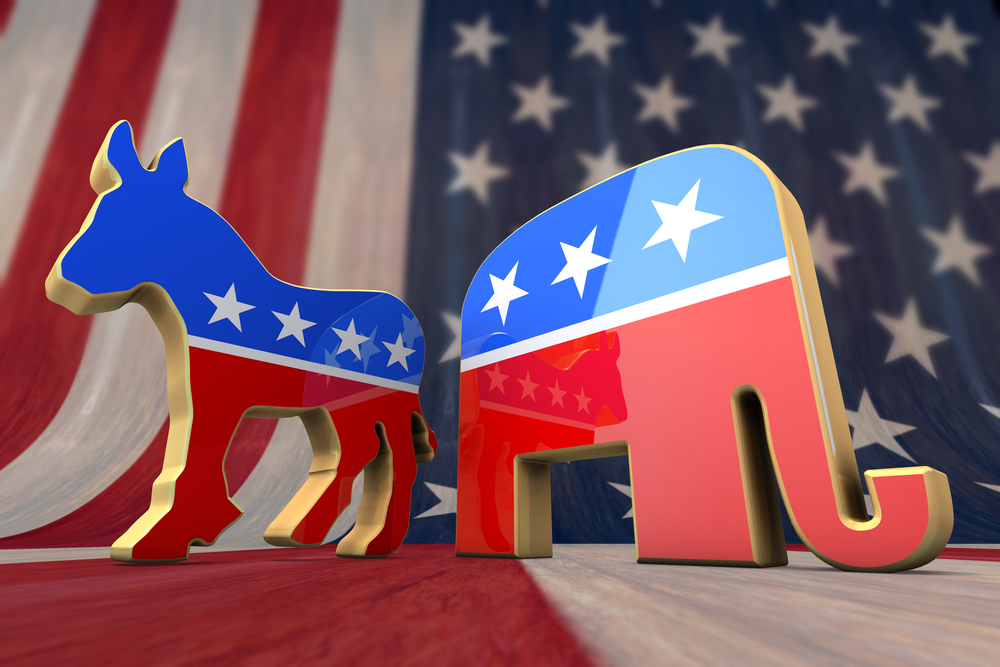
As Democrats look to reverse Republicans’ monopoly control in Washington and the GOP advantage in state capitals, the party is still looking for a crisp, simple message for voters. Here’s a look at what some Democrats say about the party’s pitch: — “We know that we can be an America that works for everyone, because we believe that our diversity is our greatest strength. … And we believe that when we put hope on the ballot we do well, and when we allow others to put fear in the eyes of people we don’t do so hot,” Tom Perez, chairman of the Democratic National Committee. — “We need to be talking about impeachment constantly. … If you’re an elected Dem & you’re not talking impeachment or 25th amendment then find a new party,” Scott Dworkin, senior adviser to Democratic Coalition Against Trump, on Twitter. — “We’re advising groups to pay attention to Russia, but the bottom line is they’re trying to take your health care away. That should be the focus. Eye on the prize,” Ezra Levin, co-founder of Indivisible. — “I focus a lot on good-paying jobs, student loan issues, health care and the effort to repeal the Affordable Care Act. Those are the issues that are at the top of (voters’) minds. … I don’t think (the Russia investigation) has to interfere with our conversation about every day matters in people’s lives,” Jason Crow, Democratic candidate in Colorado’s 6th Congressional District. — “Voters are getting plenty about the Russia story, and they don’t need candidates’ help making that case. … I think it’s a fundamental mistake to make this election a referendum on impeachment. That means it’s not an election on a health care bill that will raise premiums and take more than 22 million people off of their health care,” Zac Petkanas, Democratic strategist, former aide to Hillary Clinton. — “We will both defend the integrity of our democracy (on the Russian investigation) and we will defend access to health care for tens of millions of people. The resistance is big enough and sophisticated enough to track both of those urgent and important issues,” Anna Galland, executive director of Moveon.org Civic Action. — “All of that (on Russia) is going to come out, and if a politician was lacking in courage and never did anything about it, I think they will pay dearly for it, and they should. … But if you’re a governor candidate next year, you’re a lot smarter saying, ‘Here’s what I’m going to do about jobs and education and wages’ than weighing in every day on issues outside your control.” David Pepper, Ohio Democratic Party chairman. — “We need to be able to explain what we’re for just as emphatically as who we are against. … Voters need to hear you talking about them more than they hear you talking about yourself, your opponent or the president.” Mayor Pete Buttigieg of South Bend, Indiana. Republished with permission of The Associated Press.
Spin meter: White House, Dems trade jabs on nominees
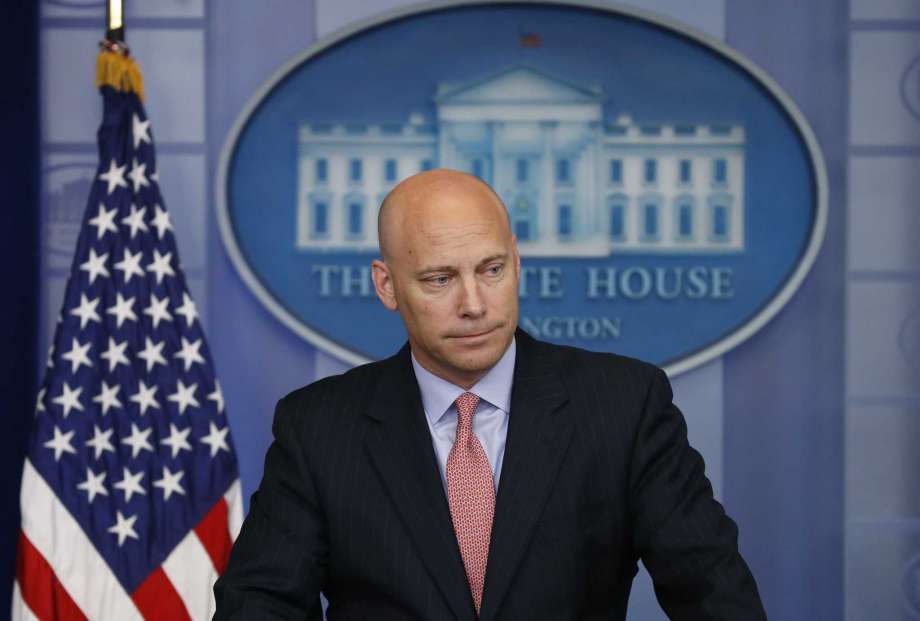
The White House complained that Senate Democrats are obstructing President Donald Trump‘s qualified nominees. Democrats countered that the administration has only itself to blame for the slow pace of filling vacancies. The Senate has confirmed only 48 of 197 presidential nominations to agencies, and only two of 23 judicial nominees have been confirmed, the White House said. “If the White House is looking for the cause of the delay, they need only look in the mirror,” said Senate Minority Leader Chuck Schumer, D-N.Y. “No administration in recent memory has been slower in sending nominees to the Senate.” Trump has failed to submit names for hundreds of vacant jobs, and the administration has submitted incomplete paperwork or delayed ethics forms for many other nominees, Schumer said. At least seven nominees for Cabinet or senior-level positions have withdrawn, including a nominee for labor secretary and two nominees for Army secretary. Both sides stretched the point in attacking the other party. Trump has nominated far fewer people to top-level jobs than his immediate predecessors, while those who have been nominated have waited longer to be confirmed. White House legislative affairs director Marc Short accused Democrats of thwarting the will of the American people. “Democrats even walked out of committee hearings to deny a quorum, like school children taking their toys from the playground. But it’s the American people who are being hurt,” Short said at a White House briefing. Short complained that deputy secretaries remain unconfirmed at six Cabinet-level departments, including Defense, Energy, Interior and Health and Human Services. A total of 32 nominees are waiting for a floor vote in the Senate, with 133 more waiting for consideration from various committees, Short said. Only 50 Trump nominees have been confirmed so far, compared to 202 officials confirmed at the same point in the Obama administration, he said. Majority Republicans control the committees and the floor schedule, giving them the say on when nominees will be considered. Even so, Democrats have repeatedly forced time-consuming procedural votes to limit debate on Trump nominees, who have waited longer than previous nominees for confirmation. A report by the Congressional Research Service said Trump had nominated only 242 people to key executive posts as of June 30, compared to 336 and 379 nominated in the same period by former presidents Barack Obama and George W. Bush, respectively. The Senate had confirmed 186 Obama nominees by June 30, 2009, and 133 Bush nominees by June 2001, the report said. Democrats have forced debate-limiting on Trump nominees 30 times, the White House said, compared to just eight such “cloture” votes on Obama nominees in 2009. The nonpartisan Partnership for Public Service said Trump’s nominees have waited an average 43 days for confirmation, compared with 35 days for Obama nominees and 24 days for those nominated by George W. Bush. Short and other officials said they hope a slew of nominees are confirmed before Congress goes on its August recess, but raised the specter that the recess could be delayed if significant progress is not made. “I think that the president has every right to call Congress back if necessary, because I think he’d made a very fair point that I believe that the Democratic obstruction is jeopardizing national security,” Short said. Schumer, as usual, had a response: “It’s typical of the Trump administration: do something wrong and then blame someone else for your problem.” Republished with permission of The Associated Press.
Democrats aim to blast Donald Trump for favoring wealthy
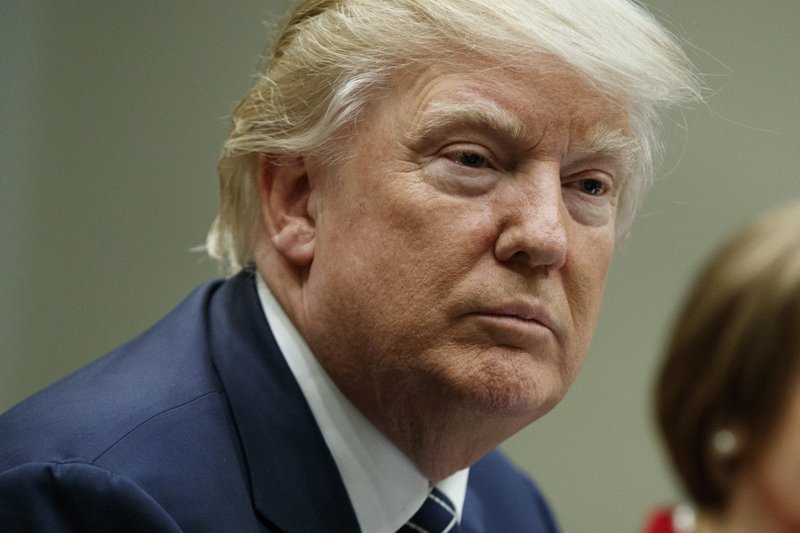
Democrats are out to capitalize on what they believe is growing public sentiment that President Donald Trump, the richest man to call the White House home, is turning his back on the people who got him elected in favor of his wealthy peers. The party is hoping that pitch will pack extra oomph at a time when even some Republicans are raising concerns that the GOP health-care plan could hurt the poor. Though stung by a series of defeats in special congressional elections, Democrats believe they can make inroads with some of Trump’s most loyal supporters by driving home the combined potential impact of proposed tax cuts that would largely benefit the wealthy and pending health care legislation that would fail to cover tens of millions of Americans enrolled in “Obamacare.” In a polling memo circulated by the Democratic group Priorities USA, Democrats say they have seen a significant shift in the last two months in the number of people that believe the president sides with the wealthy and big corporations over average Americans. Democrats plan to turn that message into a prominent sales pitch for their candidates and surrogates, and could make it the theme of ads as well. Guy Cecil, the group’s chairman, said that for the president’s first three months in office, voters who backed President Barack Obama then switched to Trump believed that the new president represented middle-class workers more than he represented the wealthy. But he said that has changed since April. “People are taking a second look,” says Cecil. “The reason that health care is so powerful is because it directly affects people’s lives and there’s a clear trade-off: You’re giving tax cuts to the rich; you’re taking health care away from everybody else.” Public polling also turns up growing unease about GOP attention to needs of the middle class. A Pew Research Center poll released last week found 57 percent of respondents said the Democratic Party “cares about the middle class” while 42 percent said that Republicans did. The White House dismissed the findings. “Unlike the Democrats who have no agenda and no ideas, the president is working hard to lower the cost of health care, cut taxes for all families and businesses, and create good jobs and higher wages for all,” said White House deputy press secretary Sarah Huckabee Sanders. Trump, of course, has never shied away from being associated with wealth. His insurgent candidacy for president was built on his business experience, and his time on the reality TV show “The Apprentice” cast him as America’s CEO, with his riches on full display. Even though he refused to release his tax returns, he boasted time and again on the campaign trail about how much money he had, even declaring, “I’m really rich.” That hasn’t changed since Trump took office. He spends most weekends at one of his opulent resorts, brags about his advisers’ wealth and even told the crowd at an Iowa rally last week that he didn’t “want a poor person” for any senior economic jobs. The nonpartisan Congressional Budget Office found that the House health care bill would leave 23 million people without insurance while the Senate would do the same to 22 million, with the brunt falling on older people with lower income. Trump’s proposed budget also targets many of the programs that help low-income Americans, such as help with heating their homes. Democrats hope it provides more ammunition to revive their effective 2012 attack lines claiming Mitt Romney had turned his back on the working and middle classes. But what worked against Romney may not necessarily be effective with Trump loyalists. “The draconian impact of the GOP Trumpcare bill is a potential asset for the Democrats,” said Wendy Schiller, political science professor at Brown University, “but the big obstacle for them is that the bill’s provisions do not take effect until well after 2018, and not entirely until 2025. So it is unclear they will be able to persuade the majority of voters in congressional districts that the sky is falling on health care if nothing much changes.” Moreover, many of the president’s backers don’t care about Trump’s wealth or his policies, their loyalty instead guided by partisan impulses and Trump’s larger-than-life personality and promises. “His supporters pay attention to what he’s saying, and less so to either the Democrats or the press,” Republican pollster Neil Newhouse said in an email. “Simply put, Democrats can criticize his health care plan and tax plan as much as they want, but it falls on deaf ears with Trump voters, as they simply tune it out.” The president’s allies point to all the failed attacks launched at Trump during the campaign and to GOP wins in the recent special elections as evidence that the Democrats won’t be successful if they are simply the anti-Trump party. Former Trump campaign adviser Barry Bennett says the party’s latest strategy is further evidence that the president is “living in their heads.” “Attacks like these are to define someone and Donald Trump is already completely defined,” Bennett said. “The people of Warren, Ohio, don’t care if he is rich. They care if he is creating jobs.” Republished with permission of The Associated Press.
National Democrats continue to target Martha Roby’s seat in 2018
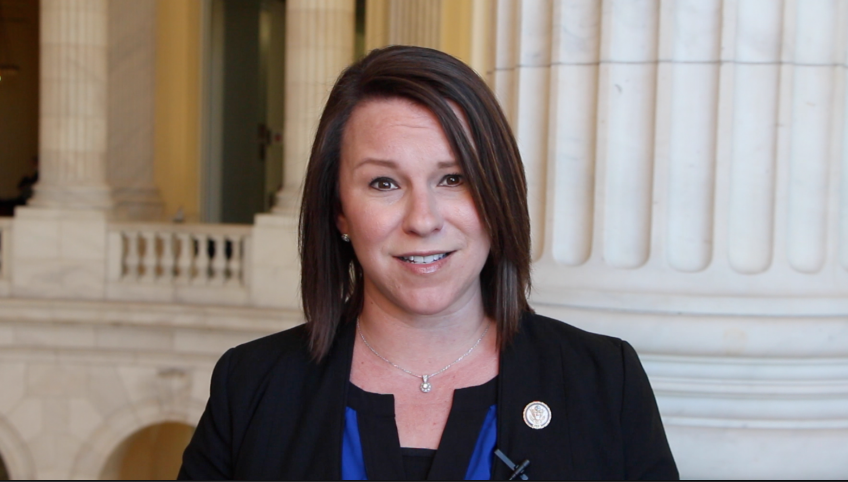
Despite a major loss in the recent Georgia special election national Democrats are still actively working to find a path to flip the U.S. House in 2018. Earlier this year, the Democratic Congressional Campaign Committee (DCCC) identified Alabama 2nd District U.S. Rep. Martha Roby as their sole target in the Yellowhammer State in their efforts to flip the House. Now, six months later — with the next general election being over a year and a half away — the DCCC is continuing to attack her every move, in hopes of capitalizing on any perceived vulnerabilities. When Senate Republicans unveiled their version of an Obamacare repeal bill last week, they saw it was the perfect opportunity to make another statement against Roby. Despite coming from the upper chamber, the DCCC is claiming the bill is only moving forward because “Rep. Martha Roby and House Republicans voted for a bill that would take health care away from millions.” “If Martha Roby thought the Senate would make this health care bill less painful for Alabama families, she was wrong. The Senate didn’t save Martha Roby,” said DCCC spokesperson Cole Leiter in his second statement made against Roby in past five days. “This horrific Repeal and Ripoff bill would not be headed to a vote in the Senate now if Roby had not voted for a bill that rips insurance from 23 million Americans, raises premiums, slaps an age tax on Americans over 50, and destroys protections for people with preexisting conditions. Martha Roby already made her bed and now she has to lie in it.” Despite the left’s attacks, Roby’s not shying away from her support to repeal and replace Obamacare, which has consistently pointed out is hurting her constituents. In fact, she visited the Oval Office last month and pledged her support to President Donald Trump to help build support for repeal and replace in the House. “Washington Democrats should have learned from recent elections that preserving Obamacare isn’t a winning message in Alabama. Our state has suffered average premium increases of more than 200 percent under this law – the highest in the country. Rep. Roby is working with the Trump Administration and her colleagues to repeal this deeply flawed law and replace it with a health care system that lowers costs, increases access, and isn’t run by the government,” said Emily Taylor, Rep. Roby’s spokeswoman. Roby won her fourth term to Congress in November when she defeated Democrat Nathan Mathis 49-41 percent. Her victory was by smaller-than-expected margins following backlash for speaking out against now-President Trump. Roby had been among the first Republican Members of Congress to stand her ground and say she would not vote for Trump following the release of the “Access Hollywood” videotape where he was recorded making crude comments about women. While Roby may have disagreed with the way Trump talked about women, she has since said she has “consistently supported President Trump’s policy initiatives and has said time and again that she wants our president to be successful.”
Angry Dems turn against leaders after House election losses
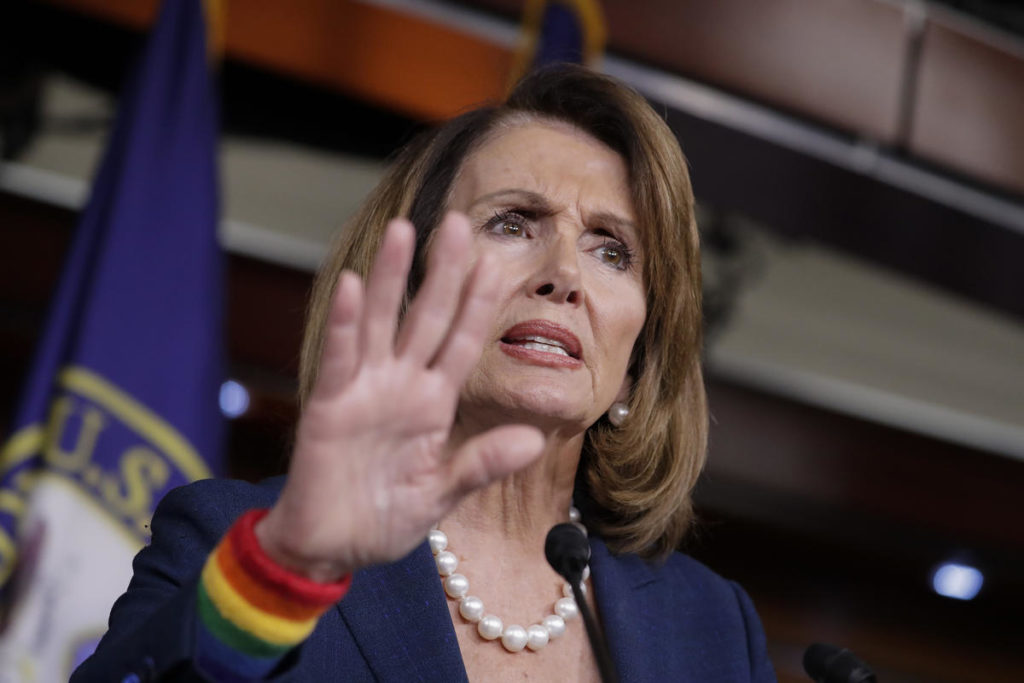
Democratic Party divisions were on glaring display Wednesday as a special election loss in a wildly expensive Georgia House race left bitter lawmakers turning their anger on their own leaders. “We as Democrats have to come to terms with the fact that we lost again,” said Rep. Seth Moulton, D-Mass. “Personally I think it’s time for a new generation of leadership in the party.” The loss in Georgia followed similar disappointments in special House elections in Kansas and Montana, as well as in South Carolina Tuesday night. The Carolina outcome was closer than in Georgia but drew little national attention. In the well-to-do Atlanta suburbs, House Minority Leader Nancy Pelosi of California was the focus of torrents of negative advertising in a House race that cost more than $50 million, the most expensive in history. Republican Karen Handel beat Democrat Jon Ossoff by about 5 percentage points. Although the race was widely viewed as a referendum on President Donald Trump, he was rarely discussed by either candidate, and House Democrats were rattled that the attack ads casting the 77-year-old Pelosi as a San Francisco liberal proved so potent. Some expressed fears about the same tactic being used elsewhere as they aim to take back control of the House in next year’s midterms. Democrats need to pick up 24 House seats to retake the majority. “It makes it a heck of a lot harder,” said Rep. Tim Ryan, D-Ohio, who unsuccessfully challenged Pelosi in a leadership election last fall. “One of the disappointing things from the last couple days is that that approach has a little bit of punch to it, it still moves voters.” Trump’s election as president had papered over the intraparty disputes and generational divides among House Democrats, as lawmakers joined in opposing the White House and trying to channel the energy of their party’s liberal base. But now, after a string of disappointments, those divisions have re-emerged, though Pelosi appears unlikely to face an immediate challenge. Lawmakers are also bemoaning a weak Democratic bench of candidates nationally, and demanding a better strategy for success and a new and stronger economic message that differentiates them more clearly from the Republicans. “If we think we’re going to win these elections because President Trump’s at 35 percent, I think in districts like mine and certainly Georgia and South Carolina, it takes more than that,” said Rep. Tim Walz of Minnesota. “And I’m not sure that that’s there yet. I certainly don’t feel it.” “We need to be focused on next November, and what happens with the reality of health care and trade, tax policies and the impact on working men and women,” said Rep. Debbie Dingell of Michigan. She said she has told Democrats to stop focusing on Russia’s meddling in the 2016 election. Put on defense, House Democratic leaders from Pelosi on down tried to spin the outcome in Georgia as positive, arguing that coming in a close second in the solidly Republican district augured well for their chances of taking back the House next year. “Unfortunately a loss for us, but not good news for them,” Pelosi told the rank-and-file in a closed door meeting Wednesday morning, according to Democrats present. “We gave them a run for their money.” Rep. Ben Ray Lujan of New Mexico, who chairs the Democratic Congressional Campaign Committee that invested millions in the race, argued in a memo to lawmakers, “Despite the loss, we have a lot to be proud of” and “we have a unique opportunity to flip control of the House of Representatives in 2018.” And Rep. Steny Hoyer of Maryland, the No. 2 House Democrat, remarked that “we had no business winning those districts” because of their GOP allegiance. Democratic leaders said there are at least 70 other districts that will be easier terrain for them than the one in Georgia after post-census gerrymandering in GOP-led states created so many heavily Republican districts. In a letter to Democrats late Wednesday, Pelosi insisted majority control of the House is up for grabs. “The president’s numbers are in the thirties and our base is energized,” she wrote. “We must now put forth our message.” Many rank-and-file Democrats were not having it. “We put a lot of resources, a lot of fight, and close is only good in horseshoes,” said Rep. Bill Pascrell, D-N.J. “A loss is a loss is a loss and there’s no excuses.” But prescriptions for how the Democrats should move forward varied. Some on the left argued for a sharper progressive message and more pointed attacks on Republicans and Trump, while Democrats from Midwestern and working-class districts emphasized the importance of an economic message that could appeal to working class voters who were drawn to Trump. One thing most everyone could agree on: Coming in second doesn’t cut it now and wouldn’t be an outcome to celebrate next November. Said Rep. Ed Perlmutter of Colorado: “Closing the gap is great, but it’s not good enough, and we have to do better.” Republished with permission of The Associated Press.
Democrats take first steps of 50-state strategy
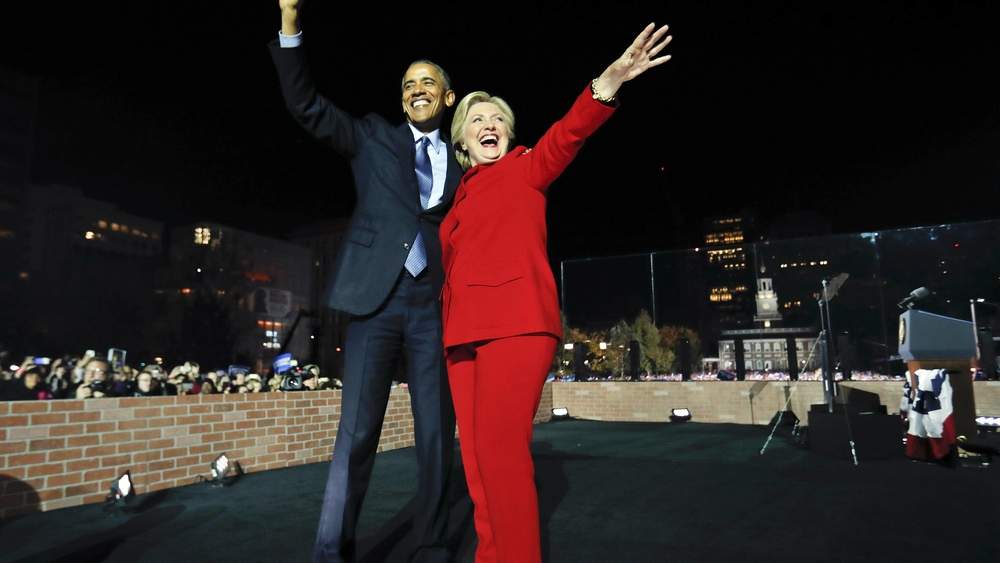
National Democrats are taking the first, modest steps toward their promised 50-state strategy, lending help to state and local parties as they try to harness opposition to President Donald Trump and the Republican monopoly in Washington. Dubbing the effort “Resistance Summer,” the Democratic National Committee plans to distribute about $1 million – with promises of more later – through a matching grant program for local Democrats to organize voters. It’s the party’s first concrete expansion plan since Tom Perez took over as chairman, and party leaders bill it as a recognition they must do more to get actual votes out of the anti-Trump groundswell. The amount is a fraction of the billions spent nationwide each election cycle and shows what the party is up against alongside liberal grassroots organizations and even a new political organization, Onward Together, by 2016 Democratic presidential nominee Hillary Clinton. Minnesota Rep. Keith Ellison, Perez’s opponent for chair and now his top deputy, said the intent is to help local Democrats manage everything from rallies, town halls and neighborhood meetings to registration drives and voter database improvements. “We’re asking them to engage neighbors not just in this whole mess about Trump … but on what kind of vision we have for our country,” Ellison said, adding that he and Perez are talking regularly to many of the independent groups on the left. Initial recipients include Arizona, Massachusetts, Michigan, Kansas and South Dakota. Those states span the spectrum of Democratic fortunes: Massachusetts is a liberal bastion; Michigan is a presidential battleground; Arizona is nearing swing-state status; Kansas and South Dakota are Republican strongholds. Nationally, Democrats face a power deficit they’ve not seen in nine decades. Republicans control the White House and Congress, hold 33 governorships and run about two-thirds of state legislatures. Michigan Democratic Chairman Brandon Dillon said he’d use the national money to help pay the six new field organizers he’s hired since November, when Clinton lost to Trump by fewer than 11,000 out of more than 4.5 million votes. Those workers are updating individual voter information the party gives its candidates. “Our voter file isn’t as good as it should be, and we haven’t been doing the kind of organizing we should,” Dillon said. In Republican-run Kansas, Chairman John Gibson has only one organizer based outside the capital. His goal is hiring one for each of the state’s four congressional districts, including a Wichita-based district where Democrats just lost a surprisingly close special House election. “It’s up to Democratic candidates to make that argument” for “a better way of governing,” Gibson said, “but it’s the job of the party to build the infrastructure candidates can use to win campaigns.” Republished with permission of The Associated Press.
Abortion issue dents Dems effort to promote next generation

Democrats desperate for fresh faces cast 37-year-old Heath Mello as a pragmatic, next-generation leader who could win in the Nebraska heartland. Yet his anti-abortion stance has become a flashpoint for the national party. If Mello prevails on Tuesday in his bid for Omaha mayor, it’s a promising sign, he says, for a candidate “with a proven record of working bipartisan and tackling some big issues and, yes, to some extent, is a pro-life Catholic Democrat.” He is challenging Republican incumbent Jean Stothert. Mello’s bid has exposed the cultural divisions within the party over the decades-old issue of abortion. It’s also proved a major embarrassment for the new party chairman, Tom Perez. Top Democrats had planned a stop in Omaha at a rally for Mello, but abortion rights groups were outraged. National Abortion and Reproductive Rights Action League President Ilyse Hogue called the DNC’s promotion of Mello “not only disappointing, it is politically stupid.” Caught off-guard, Perez reversed himself, saying “every Democrat, like every American, should support a woman’s right to make her own choices,” and called on Democrats to speak with “one voice.” They didn’t. At the April 20 rally in Omaha, Sen. Bernie Sanders, the Vermont independent who sought the Democratic presidential nomination last year, endorsed Mello and asked, “Omaha, are you ready for a political revolution?” Perez, who had been scheduled to attend, instead campaigned for a Georgia candidate. The party chairman’s actions angered several moderate Democrats and frustrated others as the party struggles for relevance. In the last decade, Democrats have lost about 1,000 elected posts from the White House to Congress to the 50 statehouses, a power deficit the party has not seen nationally in 90 years. In Nebraska, where Republicans control every congressional and statewide office, Democrats don’t have the luxury of being choosy, Mello supporter Abbie Raikes said. “As liberals in Nebraska, you become accustomed to making compromises,” said Raikes, a 45-year-old public health professor at University of Nebraska Medical Center in Omaha. Raikes, talking with Mello in her near-west Omaha neighborhood last week, supports him in part for plans to promote affordable housing, not because he backed a half-dozen abortion restrictions during eight years in the legislature. After all, the highest-ranking Democrat outside of the state legislature is the mayor of Lincoln. Democrats must invite new faces with diverse viewpoints into its leadership, said Rep. Tim Ryan of Ohio, who described Perez’s reaction to Mello as “really damaging.” “Requiring everybody to fit some purity test is a recipe for disaster,” said Ryan, who unsuccessfully challenged Rep. Nancy Pelosi for House Democratic leader last year. “There are going to be people who are Democrats who may not check all the boxes. But they are with you 80 percent of the time and can win in tough places.” Anti-abortion Democrats have almost disappeared in Congress. Only three senators fit the description, and all three — Bob Casey of Pennsylvania, Joe Donnelly of Indiana and Joe Manchin of West Virginia — are up for re-election next year in states President Donald Trump won in 2016. Pelosi last week told The Washington Post that abortion should not be a litmus test for Democrats. In the state legislature, Mello represented an older, ethnically diverse, working-class district in south Omaha, a few miles from the nation’s onetime railroad and meatpacking epicenter. But Mello has projected what he calls a “pro-growth, progressive, future-focused” style, which reflects Omaha’s moderate tendency. He favors a government partnership with private industry, a concept often associated with Republicans, for Omaha’s crumbling streets. He also has campaigned heavily in Omaha’s troubled north side, where most of the city’s homicides occur. Mello’s campaign fundraising co-chairwoman, Andy Holland, is the past president of Planned Parenthood of Nebraska. The aspiring mayor also has the support of self-described conservative Mike Kozlik, a lawyer who met Mello last week as the candidate strolled door-to-door through the elegant Dundee neighborhood west of downtown. “Too often Democrats want to coddle people. Mello comes from working stock,” said Kozlik, 64, a south Omaha native whose family struggled during his youth. “He understands the working man.” A Democratic mayor could give the party a leg up in Nebraska’s 2nd Congressional District, more than two-thirds of which is in Omaha, as the party hopes to claw its way back to the majority next year. And in a state that apportions its presidential electoral votes by congressional district, the mayor’s office could be an important Democratic foothold. Democrat Barack Obama carried the district in 2008, but lost it in 2012, as did 2016 Democratic presidential nominee, Hillary Clinton. Republished with permission of The Associated Press.


